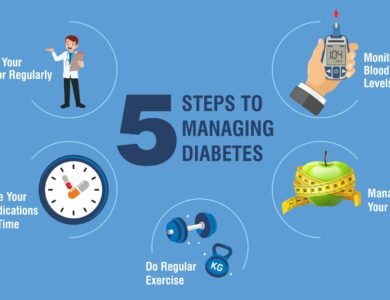
Anxiety is a common condition that affects millions of people worldwide. While occasional anxiety is a normal part of life, persistent and overwhelming symptoms may indicate the need for professional help. Recognizing when to see a specialist for anxiety is crucial in receiving appropriate treatment and support. In this article, we will explore key indicators that suggest it’s time to consult a specialist for anxiety.
Persistent and Disruptive Symptoms:
- If anxiety symptoms persist and significantly interfere with your daily life, it may be time to seek a specialist such as ARC Healthcare in Huntsville. Symptoms such as excessive worrying, irrational fears, panic attacks, recurrent intrusive thoughts, restlessness, difficulty concentrating, or sleep disturbances can be signs that your anxiety is beyond the scope of self-management.
Impact on Functioning and Relationships:
- When anxiety starts affecting your ability to function effectively at work, school, or in your personal relationships, it is a strong indication that professional help is needed. If anxiety is preventing you from completing tasks, participating in social activities, or causing strain in your relationships, seeking a specialist can help you regain control and restore balance in your life
Related: 8 Pressure Points To Relieve Migraine Headaches
Frequent and Intense Panic Attacks:
- Panic attacks are intense episodes of fear or discomfort accompanied by physical symptoms such as a rapid heartbeat, shortness of breath, chest pain, dizziness, or a sense of impending doom. If you experience recurrent panic attacks or live in fear of having one, a specialist can provide a comprehensive evaluation and develop a treatment plan to manage and alleviate panic symptoms.

Co-occurring Mental Health Conditions:
- Anxiety often coexists with other mental health conditions, such as depression, obsessive-compulsive disorder (OCD), post-traumatic stress disorder (PTSD), or eating disorders. If you have a pre-existing mental health condition or suspect that anxiety is complicating your overall well-being, it is essential to consult a specialist who can assess your symptoms holistically and develop a tailored treatment plan.
Ineffective Self-Help Strategies:
- While self-help techniques like stress management, exercise, and relaxation techniques can be beneficial, if your anxiety persists despite consistent efforts, it may be time to consult a specialist. A mental health professional can help identify underlying causes and provide evidence-based interventions that are specifically tailored to your needs.
History of Trauma or Significant Life Events:
- Experiencing trauma or significant life events can trigger or exacerbate anxiety symptoms. If you have a history of trauma or recently encountered a distressing event that has triggered anxiety, seeking a specialist can be instrumental in addressing the psychological impact and helping you navigate the healing process.
Related: Simple ways to calm down and get rid of anxiety
Impaired Quality of Life:
- If anxiety is diminishing your overall quality of life, affecting your self-esteem, causing chronic stress, or leading to feelings of hopelessness or despair, it is time to reach out to a specialist. Seeking professional help can empower you to regain control over your life, develop healthy coping mechanisms, and enhance your emotional well-being.
Conclusion:
Recognizing the signs that indicate the need for specialist intervention is crucial when managing anxiety. If your symptoms persist, significantly disrupt your daily life, lead to frequent panic attacks, co-occur with other mental health conditions, prove resistant to self-help strategies, are triggered by trauma or significant life events, or impair your overall quality of life, it’s time to consult a specialist.
Remember, seeking help for anxiety is a proactive step towards healing and well-being. A mental health professional can provide a comprehensive evaluation, accurate diagnosis, and appropriate treatment to help you manage your anxiety and live a fulfilling life.



